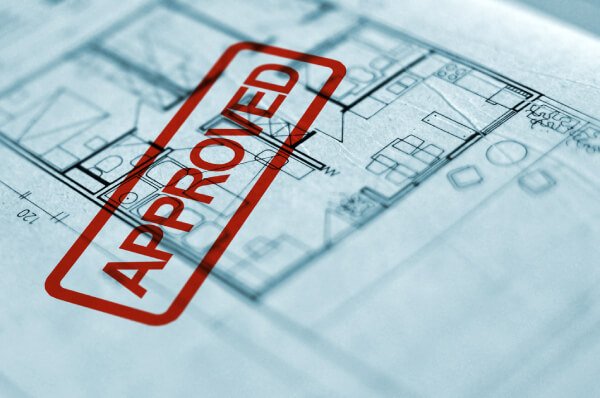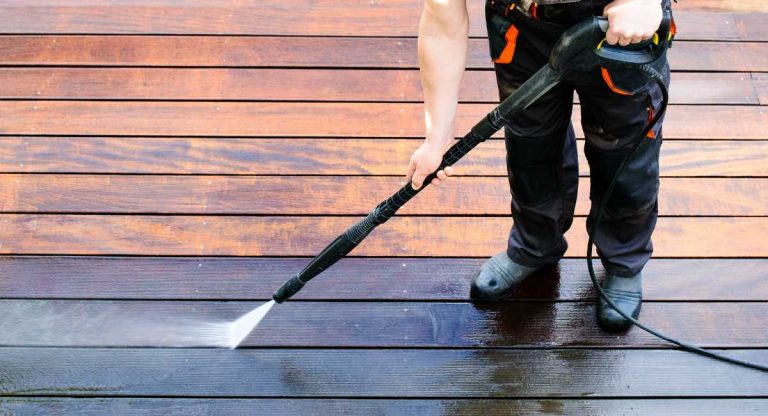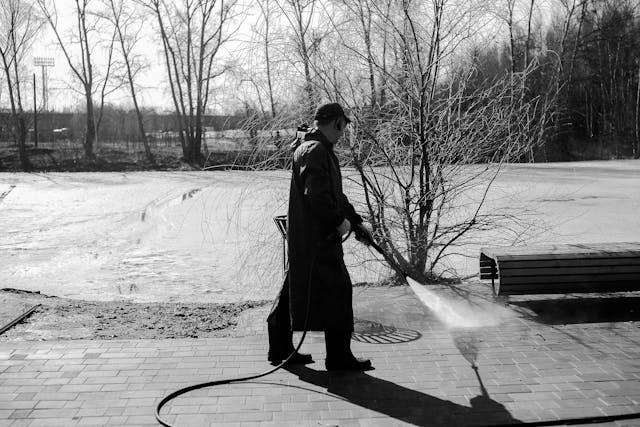
Hiring a power washing company may seem like a simple process—call a pro, schedule the job, and enjoy clean surfaces. But depending on where you live or what kind of property you manage, you may need permits, approvals, or formal clearance before any work can begin. 🧼🏡
Whether you’re in an HOA-regulated community or managing a commercial site within city limits, overlooking these requirements can result in delays, fines, or disputes. Here’s what you need to know before bringing in the power washing crew.
🏘️ When HOA Approval Is Required
Homeowners’ associations (HOAs) exist to preserve the appearance and value of a community. Because power washing often changes the exterior appearance of a home—or involves noise, water use, and visible equipment—it can fall under the umbrella of regulated activities.
Common Scenarios Where HOA Approval May Be Needed:
✅ Power washing the siding, especially if paint or finish may be affected
✅ Cleaning the driveway, sidewalks, or fences
✅ Hiring a contractor who will be using shared roadways or limited parking
✅ Cleaning surfaces that border common property or community features
✅ Prepping for exterior painting (which usually needs HOA pre-approval anyway)
🛑 Some HOAs even require written notification to neighbors before cleaning is scheduled—especially if there’s a chance of overspray, runoff, or equipment blocking driveways.
📄 How to Get HOA Approval for Power Washing
Every HOA is different, but here’s a typical process:
- Review the HOA Guidelines: These are usually found in your CC&Rs (Covenants, Conditions & Restrictions) or on the community’s portal.
- Submit a Request Form: Fill out any necessary forms outlining the scope of work, surfaces being cleaned, contractor info, and proposed dates.
- Provide Contractor Details: Some HOAs require the contractor’s insurance certificate, business license, and method of cleaning.
- Wait for Approval: Some boards review requests monthly, so plan ahead.
💡 Tip: Choose a contractor who’s familiar with working in HOA-regulated areas. They’ll often have experience with the paperwork and compliance requirements.
Browse Amazon Here For Popular Pressure Washers And Accessories
🌆 Permits for Commercial or Public Properties
In commercial zones or city-regulated environments, power washing may require municipal permits—especially if:
- You’re cleaning sidewalks, parking lots, or facades near storm drains
- The job involves traffic disruption (e.g., cones, barriers, or lane closures)
- A scissor lift or boom is required for high areas
- You’re disposing of waste or reclaiming water through city sanitation
Many cities now enforce stormwater runoff regulations to prevent chemicals, oils, or soaps from entering public waterways. 🌊 In places like California, Washington, and Florida, these environmental rules are strict and enforced with fines.
🧾 Types of Permits That May Be Required
| Permit Type | Common Use Cases | Who Issues It |
|---|---|---|
| Water Discharge Permit | Cleaning near storm drains, using soap or chemicals | City Environmental Dept. |
| Encroachment Permit | Blocking sidewalks or using equipment on public right-of-way | Public Works or City Hall |
| Noise Permit | Early morning or night work in dense areas | Local Municipality |
| Special Use Permit | Cleaning historic structures or landmarks | Preservation Boards or City Planning |
A professional contractor should be able to pull these permits or advise you on what’s needed for your specific property.
🏢 Multi-Family and Mixed-Use Buildings
If you manage or own a condo, duplex, or mixed-use property, the lines between private and shared responsibility can get blurry. You’ll often need to:
- Get board approval (if you’re part of a condo association)
- Notify residents or tenants ahead of time
- Limit noise or schedule around peak hours
- Confirm who pays—owner vs. HOA vs. tenants
💬 Communication is key. Always document approval and keep a written record of what areas are being cleaned, especially for shared spaces like walkways or stairwells.
🔍 What to Ask Your Contractor
A reputable power washing company will not only know local regulations but may also help you stay compliant. Be sure to ask:
- “Do you pull permits or assist with applications?”
- “Have you worked with HOAs or city projects in this area?”
- “What cleaning methods do you use to avoid runoff fines?”
- “Are your soaps and surfactants EPA-approved?” 🧪
- “Can you provide documentation if needed?”
Some companies even have templates or HOA letters you can submit directly—this can speed up the approval process significantly.
🧼 The Risks of Skipping Approval
If you go ahead with a job without securing the proper approval, here’s what could happen:
🚫 Fines from the HOA for unauthorized exterior work
🚫 Cease-and-desist orders from the city or environmental agency
🚫 Damage claims if runoff enters storm drains or neighboring properties
🚫 Insurance issues if the job leads to property damage and wasn’t authorized
While it might seem like a small cleaning job, the risk of noncompliance can be steep. Don’t cut corners.
💡 Final Thoughts
Before you hire a power washing company, do your due diligence. Check with your HOA, review local regulations, and ask your contractor what permits or approvals may be required. The best professionals will guide you through the process and make sure everything is handled legally, safely, and efficiently.
A clean surface is great—but a clean surface done by the book is even better. ✅
Browse Amazon Here For Popular Pressure Washers And Accessories






